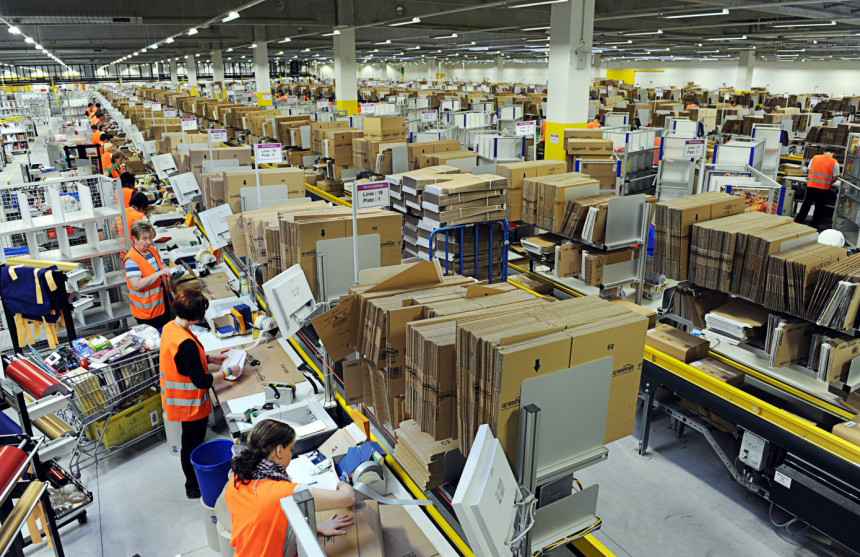Amazon exec resigns over worker persecution!
The vice-president of Amazon has resigned over the sacking of workers who had organised against the company’s unsafe working conditions during the coronavirus pandemic. Tim Bray called the firings “chickenshit” and “designed to create a climate of fear.”
“At the end of the day,” Bray said, “the big problem isn’t the specifics of Covid-19 response. It’s that Amazon treats the humans in the warehouses as fungible units of pick-and-pack potential. Only that’s not just Amazon, it’s how 21st-century capitalism is done.”
Amazon made more than $33 million an hour in the first three months of this year. Chief executive Jeff Bezos, the richest man in the world, has seen his personal fortune grow to $145 billion.
On May Day, Amazon workers across the US took part in a “sick-out” to protest against lack of PPE, safety measures and sick pay.
- See also ‘Coronavirus: Amazon workers threaten revolution’ at socialistparty.org.uk.
US airlines spent 96% of cash on share buybacks
The top airlines in the US – now begging for bailouts to prevent bankruptcy – spent an average of 95.8% of their free cashflow in the last decade on share buybacks, calculates Bloomberg.
When firms buy their shares back, they are handing money to those (former) shareholders. But this also increases the wealth of remaining shareholders, who therefore own a bigger proportion of the company. All the bosses win!
Airlines are among the worst, but firms across the ‘S&P 500’ top US companies spent an average of 53% of free cashflow on share buybacks in the last ten years. That’s billions upon billions of money the bosses could have invested in new production, reserves against calamities like this, or wages for workers.
Half of all world’s workers face imminent destitution
The 1.6 billion workers in the informal economy – casual workers, who make up half the global workforce – are in immediate danger losing their livelihoods, warns the UN’s International Labour Organization. Worldwide, this section of workers lost 60% of its income in the first month of the pandemic alone.









